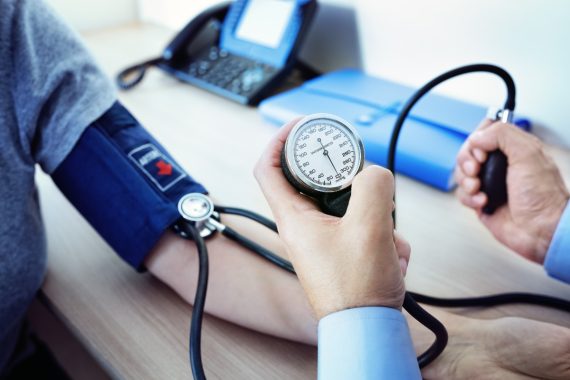National review of health checks needed amid ‘postcode lottery’, says study

A national review of NHS Health Checks is needed, say researchers who found wide variation in how the service is offered and a ‘postcode’ lottery in the advice and support patients receive afterwards.
The findings by the research team at the University of Oxford raise questions about whether the programme can deliver positive outcomes for the majority of those having checks in its current form and underline concerns about inequalities.
It comes as the Government’s ‘levelling up’ White Paper said it would be looking into the ‘future’ of the NHS Health Check scheme in February this year.
A wide variety of documents, including NHS literature and conference reports, were included in the review which aimed to focus on what happens at the end of a health check after the measurements and risk assessments are done.
Reporting in BMJ Open, the researchers found differences in understanding of the primary purpose of a health check, which they said affected how programmes are commissioned, delivered and received by patients.
There is also a wide variation in how NHS Health Checks are implemented locally and what happens after a patient has been seen, which could be medication for cardiovascular disease (CVD) risk or more general lifestyle advice and signposting to other services.
A data lack of ‘post-check’ data means there is no evidence about what works best or what those delivering health checks should be offering, they found.
‘The success of the NHS Health Check programme as an intervention that aims to support individuals to manage and reduce their CVD risk rests on what happens to attendees when the measurements and risk assessments have been completed,’ the researchers concluded.
‘While case-finding is an important indicator of success, the delivery of advice, offers of signposting, referrals or other support and attendees’ responses to these, is equally crucial for the programme to prevent ill-health and reduce inequalities in the longer term’, they said.
In addition, the limited resources available in many places for the programme is also a concern, they said.
It means case finding is prioritised over work to support behaviour change which raises ethical questions over what it means for attendees who are left with no help to manage or reduce risks, they added.
On a national and local level there needs to be a focus on evaluation and improvement on the later stages of the health check pathway, ie, once a patient has been assessed, they said.
This supports a review done by last year by the Office for Health Improvement and Disparities that identified a need to ‘build sustained engagement’ and ‘create a learning system’, they added.
Another concern raised by the findings is that of equity, explained study lead Claire Duddy, from the Nuffield Department of Primary Care Health Sciences at the University of Oxford.
‘Data on attendance and measurement is better captured than what happens after that. We have to ask do we know what is the best way of doing this part of the health check without having that data.
‘And on top of that there is the equity question, which patients are getting what and which patients aren’t. There is a real gap in the data on what happens after a health check.’
Professor Azeem Majeed, professor of primary care and public health at Imperial College London said the NHS Health Check programme was initially set up as a national programme but was then transferred to local government in 2013.
‘Given that the NHS is now working in a very resource-restrained environment, I would prefer national guidance so that the programme was implemented consistently across England,’ he said.
‘There are health gains to be made through for example improving the detection of problems such as high blood pressure, type 2 diabetes and chronic kidney disease.
‘People would also benefit for support in areas such as advice on weight-loss and smoking cessation. This would be better done through a programme where the operating procedures were set nationally.’
Pulse October survey
Take our July 2025 survey to potentially win £1.000 worth of tokens

Visit Pulse Reference for details on 140 symptoms, including easily searchable symptoms and categories, offering you a free platform to check symptoms and receive potential diagnoses during consultations.
Related Articles
READERS' COMMENTS [1]
Please note, only GPs are permitted to add comments to articles










Prof Majeed, please point me to one scrap of evidence that screening the general population for CKD is helpful.
Informing hundreds of thousands of healthy people that they have a “chronic disease”, which in fact will never cause them the slightest actual problem seems deeply irresponsible.